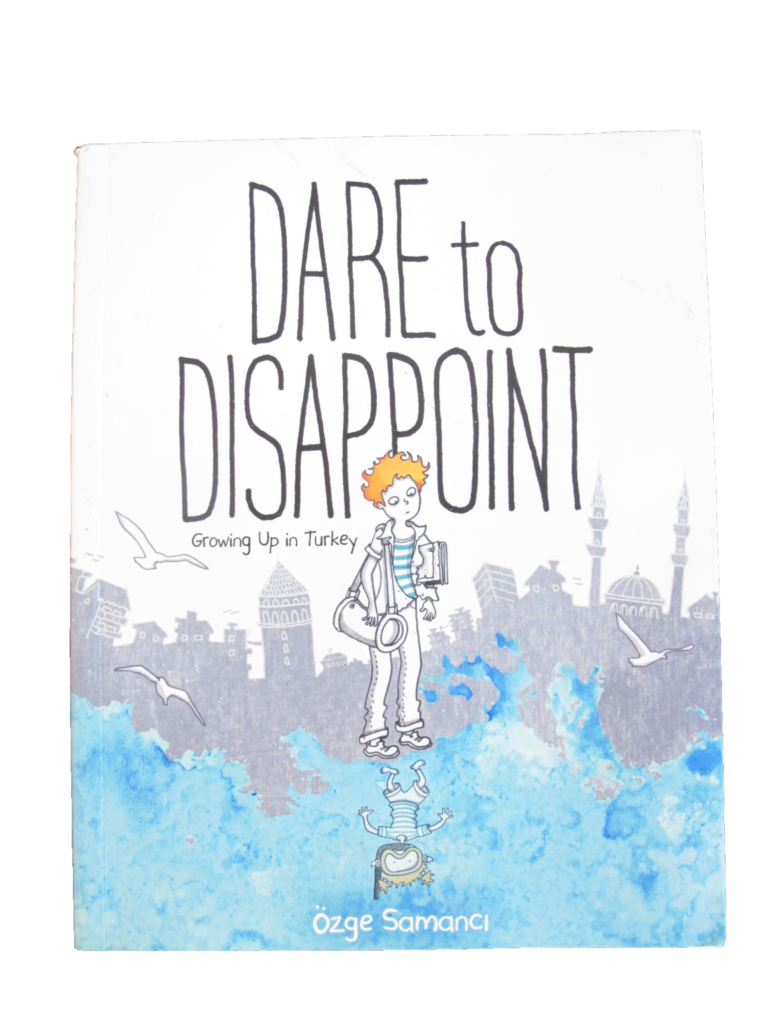In Which I Go to a Turkish Wedding and Think Very Judgmental Thoughts
The Malvolio waiting in the wings of the Turkish wedding is an old woman. She does not dress up, instead generally wearing a plain black cloak. Her unique function is to mine all the possible gossip from the event. Was the bride’s dress sufficiently fancy? Which guests brought a paltry gift, or didn’t bring one at all? Who wore a hijab but danced to bring all the boys to the yard?
These old women are known as “teyze” in Turkish. Being judgmental is not a teyze prerequisite, but teyzes are usually traditional and, in a country where entertainment means television and not much else, gossip is what keeps their lives interesting.
After arriving at the wedding and completing the necessary rounds of greeting relatives she likes or pretends to like, the judgy teyze sits down and keeps her face expressionless (lest anybody think she is actually having fun – or maybe because Turkish weddings are not fun.) And from her perch on her chair, one of 300 other judgy teyzes, she inspects the cake and the festivities with an eagle eye trained towards anything gossip worthy to break up the monotony of rolling out endless sheets of phyllo pastry over the next few weeks. She does not dance. She considers herself too old for that, of course, and anyway, the dance floor is only big enough for ten percent of the wedding guests and they keep playing the same five songs over…. And over…. And over again..
I feel empathy for judgy teyzes, because I recently went to my first Turkish wedding and was unable to maintain any kind of remotely anthropological outlook. Why? It was the dullest, most awkward event that I have ever attended, and I have been told that this is normal as far as weddings are concerned. So I judged, since there was nothing else to do, and judged away!
Turkish weddings, at least traditionally, span two days. The first night, historically only for women, is called the kina gecesi. (This is Turkish for henna night, a tradition most people will have heard of.) Nowadays, everybody can attend, but only women get to sit down, which means that men can casually slip away if they get bored, which they will.
At the henna night that we recently attended, the bride wore a dress that couldn’t fit through the door. Everybody sat down. Eventually the bride and groom showed up, and danced. Finally, everybody was allowed to dance, but if you didn’t want to, your only option was to sit there. The music was too loud for talking, and too grating for enjoyment. And the DJ kept playing the same songs over and over.
After about two hours of this, during which time you couldn’t leave because you hadn’t seen the bride get henna put on her hands yet, the bride went to change her dress to a traditional henna night gown. Her mother put a blob of henna on her hands (no intricate patterns here!), the bride and some of the guests danced for an hour more (which you have to stay for) to the same songs, and then they distributed favours,and finally about twenty minutes after that it was appropriate to leave.
No alcohol.
If you cannot dance for three hours straight, there is really nothing to do but think about how bored you are. No awkward drunk uncles give memorable, embarrassing, exciting speeches. There is no food on your plate to poke at. You just sit there in a plastic chair in a dress, waiting for it to end, wondering if your hearing will be permanently damaged by the volume of the music, and thinking enviously of the men in the back who can just leave if they want to.
The only people in a less enviable position than the woman guests of this event are the bride and groom who, although they are to repeat the entire performance the following evening at the actual wedding, are not permitted to stop dancing for the entire ceremony.
Ah well, so that felt like a waste of an evening. Perhaps the wedding will be better?
We spent the entire day at the home of the bride and groom’s parents so we could see the groom forcibly removing the bride from her home. It’s not a violent event. The bride stays in a room guarded by her oldest brother. The groom gives money to the brother to give up his sister, and the father ties on a red ribbon to symbolize the bride’s virginity. To symbolize the groom’s virginity, he has to wear a red ninja headband.
Just kidding, virginity only matters when it’s the bride of course!
Now the groom has the bride. Everybody disperses to make themselves ready for the wedding. For close relatives, this means doing everything in their power to upstage the bride. Long cream or light-coloured dress? Check. Nine solid gold bangles? Check. Ostentatious up-do or hijab-do? Check.
My sister-in-law and I went to the hairdresser with some other relatives to take part in this ritual (though of course I couldn’t bring myself to do anything upstage-y.) Here, I learned an interesting thing. Hijabis getting ready for an important event are not allowed to ditch the hijab, because that would be immodest. Instead, they get a hairdresser to arrange it so that it’s many pleats and folds look fancier, and then they get makeup put on their face so they look fancier. And they wear a long dress with lots of sparkles so they look fancier. Everything about it says, “look at me,” but at least it’s modest.
After the hairdresser, off to the wedding. The venue was outdoors and tastefully decorated. We sat down and discovered, joy of joys, some other English-speakers who had been invited and to whom we could say everything catty that we wanted. The bride and groom walked down the aisle. They cut what looks like a Costco sheet cake. Then they danced their first dance. Then there were three more hours of dancing. Once again, the music was too loud. The DJ, who was not the same DJ, played the same five songs from the previous night! There was no ceremony, as apparently in Turkey “a wedding” is the thing we fondly dub “a wedding reception” in good old North America. And we were served food (thank God), and cake which was not the same cake that the bride and groom cut because…. Even the largest wedding cake isn’t large enough for 600 of your closest friends and family, I guess. It was ice cream cake, which I remember being all the rage for birthday parties when I was 9.
No ceremony, no speeches, not even a relative insisting on singing a song in a cringe-inducing faux-operatic style.
Finally, it was over, and we could go home.
On to the most catty thing I’ll say here. A number of women were wearing large amounts of solid gold jewelry. Since the Turkish currency has been unstable for at least the past 70 years, most Turkish people of any means choose to save their money in gold. This gold comes out during significant events like weddings and holidays, but cannot be worn every day because it is too soft.
Every member of the brides family was wearing multiple pieces of 22 carat gold, the bride wore no fewer than three dresses, the groom two suits, the venue was on the pricey side, but none of them appeared to have been to the dentist in at least ten years.
Not only does it seem to be a no-brainer for me that the day whose photographs will grace your mantlepiece for the rest of your life you would like to have clean teeth, just one of those inch-thick bangles could buy a lifetime’s worth of yearly dentist appointments.
But yeah. Something something can’t judge another culture. Just kidding. I am beyond the point of thinking that one should not make judgments, at least where decisions or traditions affect people who are not yourself. Judgment, where it doesn’t evolve into contempt, is important. It allows us to fight for improvement. And although a wedding a relatively small thing, it’s not nothing to force 600 people to listen to the same too-loud songs for six hours and to lose their entire weekend to that end. I felt resentful. I can’t have been the only one.
Turkish society remains very conformist and traditional, and it can be very hard for some Turkish people understand that things might happen another way than what they’ve always been used to. I was initially okay with this, thinking that it wasn’t my place as an immigrant to step on anybody’s toes. However, when I allowed my mother-in-law to plan my engagement ceremony, I soon realized the folly in this outlook. The whole event was just… awkward. There was no MC to move the ceremony along. We, as the couple getting engaged, didn’t know what to do with ourselves after they put the rings on, and nobody told us what we were supposed to do, so we sat there blushing awkwardly.
When I asked Adem about it, he said, “Well, engagement ceremonies are always like that.” We had a similar conversation about the recent wedding.
“You didn’t find the wedding as horrible as I did?” I asked in a discussion the following day.
“No, it’s normal,” he said.
Fortunately during our engagement ceremony, my parents were there to rescue it by giving some speeches. But I still felt, after it was over, a sense of shame that I hadn’t been more proactive in designing a ceremony that was considerate to everyone, a ceremony that didn’t feel like a chore to attend.
And if you’re thinking, “well maybe the most considerate thing would be to just follow the traditions,” you’re entitled to your opinion, but I think too much tradition can keep things stagnant and allows us to continue practices that reinforce harmful ideals. The virginity ribbon? No thank you. Anything that represents an idea that a woman can be bought? I’ll pass, thanks. And anything that makes people feel like they’re wasting their time? No, weddings are a joyful occasion and, if possible, should be joyful for everyone in attendance.
All that being said, these ideas are easier said than implemented. I’ve been stressed about our wedding coming up because I want to make it an event that doesn’t make people grumble with resentment, but I am still fairly constrained by the traditionalism around me. For example, I have already conceded that we will invite 600 people from Adem’s side, which is insane. Adem wants me to wear one of those gaudy princess dresses and teases me by showing me white dresses from H&M that he says are similar to the ones I show him. (To be honest, if it looked okay, I would wear a dress from H&M and I would even wear a dress that wasn’t white, but that is one tradition that I have been forbidden from sinning against.) And I’m not even allowed to think about having alcohol at the wedding itself, though I have negotiated for there to be some both before and after. Every single tradition needs to be negotiated. It’s so much.





